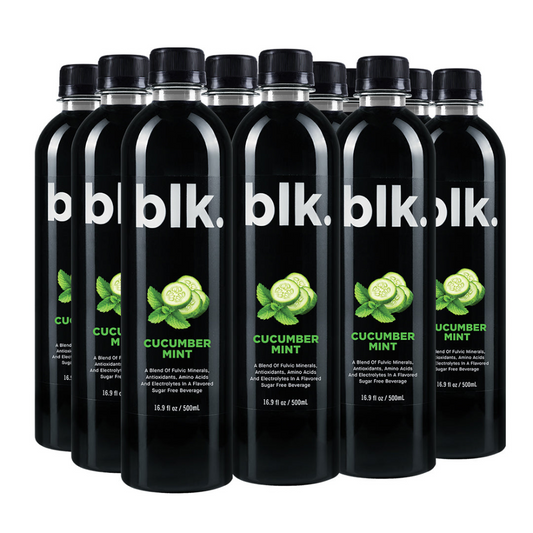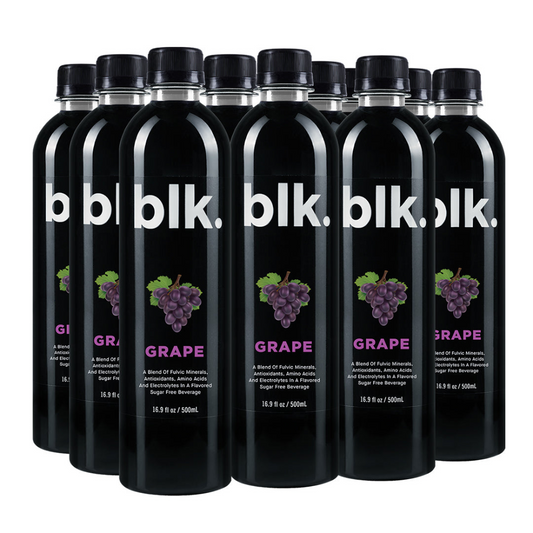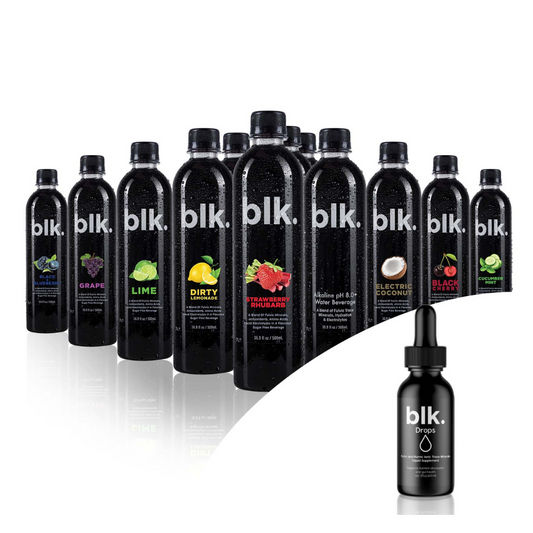
Appetite Suppressants: The Science of Hunger and Weight
This article sheds light on the following:
- What appetite suppressants are
- The science behind hunger and appetite
- How appetite suppression supports weight loss
The need to lose weight has created a craze about dieting and weight loss supplements. Many people look to reduce their calorie intake through dieting, to prevent weight gain and lose weight. However, dieting may be difficult because it can increase hunger, appetite, and cravings. You may be forced to suppress your hunger, appetite, and cravings to diet successfully. Appetite suppressants may be of significant help. This guide sheds light on what appetite suppressants are, what they do, and their relation to weight loss. We have also tried to help our readers understand the difference between hunger and appetite and the science behind it. Hopefully, you will be able to decide on buying the best 2023 protein powders for appetite suppression by the end of this guide.
What are Appetite Suppressants?
Appetite Suppressants are involved in food intake regulation. They are substances or medications that lower a person’s desire to eat by influencing the brain into neutralizing hunger pangs and making the person feel full quicker on a small portion of food. As a result, the person’s calorie intake is reduced, leading to weight loss.
There are natural appetite and synthetic suppressants. Natural appetite suppressants occur naturally in foods, plants, and herbs, while synthetic ones are medications manufactured to reduce appetite. Fibre-rich foods, protein powders, and coffee contain natural appetite suppressants. On the other hand, synthetic appetite suppressants may comprise medications such as diethylpropion.
Understanding Hunger and Appetite
Knowing about hunger and appetite is necessary to understand appetite suppressants' role in weight loss since these two influence our food and calorie intake.
The Science Behind Hunger and Appetite
For your body to perform any action, it needs a constant supply of energy provided by calories in the food you eat or from glycogen and fat stored in your body. The need for energy and various nutrients drives our bodies to respond by sending hunger signals that motivate us to eat.
The terms hunger and appetite are usually used interchangeably. However, there exists a significant difference between the two. There are several ways of defining hunger, depending on the context. In our context, hunger refers to the body’s physiological need for food - a temporary discomfort of needing to eat. It is a feeling of an empty stomach accompanied by an urge to eat. Though varied from one person to another, it bears several symptoms, including mild light-headedness, a grumbling stomach, fatigue, and occasional dizziness and nausea.
Appetite, on the other hand, refers to the desire to eat. Although it may be a consequence of hunger, it is usually caused by external factors such as sight, smell, or the thought of food. Sometimes, a person may develop an urge to eat a particular food, a feeling commonly referred to as a craving. Cravings increase a person’s appetite and may occur regardless of hunger. A study on food cravings showed that the most often craved foods are rich in sugar and salt.
The Role of Hormones in Regulating Hunger
Hunger is caused by a complex system of both physical and hormonal cues. It involves several body parts, including the brain, the nervous system, the stomach, the pancreas, and the small intestine. Two major hormones are associated with hunger: ghrelin and leptin.
Ghrelin may also be called the ‘hunger hormone.’ It is majorly produced in the stomach, although your brain, pancreas, and small intestines may also produce it in small amounts. It is secreted when your stomach is empty. Upon secretion, it travels to the brain through your bloodstream and informs your brain that you are hungry and need food. In the brain, it affects the hypothalamus, responsible for hunger hormone regulation and appetite control mechanisms. Ghrelin influences the hypothalamus to increase appetite.
An increase in ghrelin levels increases your hunger. When the ghrelin levels reduce, you feel full. Usually, ghrelin levels go up before a meal when your stomach is empty and decrease the moment your stomach is full.
Leptin is responsible for satiety hormonal signaling and regulates hunger by giving satiety signals. It interacts with the brainstem and hypothalamus, informing them there are enough calories in store.
Other hormones associated with hunger include insulin and cortisol. An increase in insulin may lead to increased hunger, heightened pleasantness of sweet taste, and increased food intake. Cortisol may also cause an increase in appetite and motivate you to eat.
The Different Types of Hunger
This section explores the different types of hunger in intuitive eating: physical, emotional, taste, and practical.
Physical Hunger
Physical hunger originates from the desire for energy from food, which creates an urge for food. Physical hunger presents itself as a gnawing sensation or emptiness in the stomach but may manifest as fatigue, anxiety, headaches, or thought of food. It is physical, gradual, hormonally regulated, an evolutionary protective mechanism, and easily satisfied by foods of any kind.
Emotional Hunger
Emotional hunger occurs when you have an unsatisfied emotional urge that manifests alongside a need to consume food. It leads to emotional eating, defined as using food to numb, deal with, or create feelings. Typically, emotional hunger is considered to be influenced by negative emotions. However, happiness and contentment may also encourage you to eat. Emotional hunger is usually controlled by a feeling or an external trigger, making it a sudden and impulsive hunger for a specific type of food. It usually is not just about the food but mainly because of something else in other areas of your life. The desire for food is a temporary fix for the overall situation.
Taste Hunger
When you crave a particular food, you are most likely experiencing taste hunger, which may occur alongside or independent of physical hunger. For instance, you may develop taste hunger immediately after eating a satisfying meal, then looking at the dessert menu and settling for an appealing food.
Practical Hunger
This type of hunger is usually not considered hunger per se because it is eating in anticipation of physical hunger that you will not be able to satisfy later. The perfect example is eating a large meal just before a long flight. Another example is when you eat at a particular time, such as at lunch break, even though you are not hungry.
Factors Influencing Hunger and Appetite
Stress, sleep, and diet significantly affects hunger and appetite.
Stress
Stress can increase, reduce or maintain the hunger and appetite level of different people. When stressed, cortisol, the stress hormone, is sent out. Cortisol leads to a craving for sugar, salt, and fat-rich foods since your brain is fooled into believing that you need the energy to combat whatever threat is causing the stress.
Sleep
Do you ever crave foods rich in sugar or fat whenever you have been deprived of sleep and feel like you have a problem? It is time to stop thinking that you have a problem. Research has shown that sleep deprivation influences hunger and appetite hormones.
Sleep deprivation leads to increased ghrelin levels and decreased leptin levels, thus leading to increased hunger and appetite. The low leptin levels mean you will hardly receive a cue to stop eating, while the high ghrelin levels will ensure that you are constantly ‘hungry’ and in need of food.
Diet
What we eat may influence how fast we get hungry. Foods rich in proteins, fat, fiber, and complex carbohydrates are usually more filling than highly processed foods because the former takes a long time to digest. The latter causes rapid changes in blood sugar levels with a sudden rise and a sharp drop in blood sugar levels.
Research shows that higher protein diets reduce hunger, increase satiety and reduce food cravings. However, restrained eating coupled with stress might lead to increased food intake, while unrestrained eaters may decrease their food intake when faced with stressful situations.
The Science of Hunger and Weight Loss
Both hunger and weight loss relate to food intake, which means a strong relationship exists between food, hunger, and weight loss.
The Relationship Between Hunger, Appetite, and Weight Loss
Weight loss refers to a decrease in body weight. Usually, it results from reduced calorie intake coupled with the burning of the calories already in your body. The use of weight loss supplements may aid the process of weight loss.
The relationship between hunger, appetite, and weight loss is based on fat and calorie intake. Foods rich in calories and fat are notorious for causing weight gain. Hunger, appetite, and cravings may lead to an increased intake of fat and calories, preventing weight loss. Reducing hunger, appetite, and cravings can lead to weight loss by preventing the continuous intake of fats and calories.
Research has shown that you can curb hunger by eating any food regardless of the food’s calorie content. You can reduce your hunger and avoid weight gain by consuming foods with fewer calories. You can also deprive yourself of the foods you crave, which are rich in calories, to prevent weight regain by learning appetite control mechanisms.
The Impact of Metabolism on Weight Loss
Metabolism refers to how your body burns calories to produce the energy necessary for life. It may either be fast, slow, or average. However, despite our metabolic rates, our bodies are configured in such a way that it stores excess calories in fat cells. As a result, if your calorie intake exceeds your metabolism, you will gain weight.
Slow metabolism burns fewer calories, meaning more calories are stored in the body as fat. On the other hand, fast metabolism burns calories faster, which explains why people with a faster metabolic rate can consume much food without gaining weight.
However, the role played by metabolism in weight loss is considered to be a minor one. Age, diet, and inactivity affect weight more than metabolism.
The Importance of a Balanced Diet and Regular Exercise on Weight Loss
Both diet and regular exercise influence weight. Smart eating and being active help to prevent weight gain and promote weight loss. Some people consider it easier to manage their calorie intake by modifying their diet than burning calories since exercise is challenging.
Exercises support weight loss by burning calories in the body. Strength training, for instance, preserves and builds muscle mass which can lead to a metabolic rate increase. Increased metabolic rates burn more calories, which leads to weight loss. This process is generally known as thermogenic fat burning. Various research on resting metabolic rate has shown that a single strength training session may increase your metabolic rate for almost 72 hours. Other exercises, such as cycling, jogging, and walking, can also burn significant amounts of fat and calories to promote weight loss.
Regular exercises can also aid in managing hunger hormones to reduce cravings and overeating. However, excessive exercise may increase appetite, discouraging weight loss.
Dieting and regular exercise combined can lead to significant weight loss. The advantage of this combination is that regular exercises aid in dieting, making the weight loss journey more enjoyable.
The Role of Genetics and Environment in Weight Loss
Weight changes in life are influenced by behavior, genetics, and the environment. A study on the role of hereditary factors in weight loss showed that genetics and the environment affect a person’s weight, with genes responsible for responding to environmental changes. Different environments may influence weight by promoting or discouraging physical activity and increasing the consumption of high-calorie foods. For instance, you may decide not to walk or jog to the store due to the lack of sidewalks in your area. Environments that promote physical activities, such as areas with parks and fitness centers, may encourage weight loss. An environment with a lot of junk food may promote weight gain by increasing appetite.
A person’s genetic composition may influence their food intake by increasing their hunger. They may affect behavior and metabolism. Genes may also influence your metabolic rate.
Understanding Appetite Suppressants
Having understood how hunger and appetite affect weight loss, it is time to know how appetite suppressants influence weight loss.
How Appetite Suppressants Work
Appetite suppressants work through satiety hormonal signaling, influencing the hypothalamus to create a feeling of satiety, an appetite control mechanism that helps lose weight through reduced food cravings and the urge to eat. They may also control hunger pangs which generally encourage us to eat.
Effectiveness of Appetite Suppressants
Reduced appetite leads to weight loss. By reducing your appetite, appetite suppressants may help you to reduce weight. However, using appetite suppressants alone may affect your weight less than you hope. Combining appetite suppressants with a healthy diet and exercise may make you lose between 3% to 9% of your starting weight within 12 months.
Appetite Suppressants Ingredients
The ingredients used to make appetite suppressants vary from one appetite suppressant to another. Though generally, the ingredients in appetite suppressants are always aimed at hunger hormone regulation, satiety hormone signaling, and food cravings reduction. The most common ingredients include;
- Glucomannan - This is a dietary fiber extracted from elephant yam or the root of the konjac plant. It may help slow the absorption of sugar and cholesterol in the gut, helping regulate sugar levels in people with diabetes and low cholesterol levels. It holds space in the stomach, promoting satiety and reducing food intake. It is also common in calories.
- Choline - Choline is an organic, soluble nutrient that helps the brain regulate various functions and may help in fat metabolism.
- Garcinia cambogia - This tropical fruit is renowned for blocking the production of fats and reducing appetite.
- Chromium - Chromium may help in food cravings reduction and hunger reduction.
- Turmeric - Turmeric has curcumin, which is vital in reducing leptin levels. Additionally, turmeric regulates sugar levels and prevents insulin resistance.
- Caffeine - Caffeine may suppress appetite and boost thermogenic fat burning. It is important to manufacturers as it aids in weight loss and calorie count.
- Vitamins B1 and B6 are commonly used to manufacture appetite suppressants to promote metabolism and suppress exhaustion.
Benefits of Appetite Suppressants
Appetite suppressants have various benefits. These include;
Reduced Cravings
Appetite suppressants are known to help in food cravings reduction by making you feel full.
Reduced Hunger
Appetite suppressants may help curb all kinds of hunger, physical or emotional. They may suppress physical hunger by creating a feeling of satiety.
You remember emotional eating. Emotional eating involves consuming food due to strong emotions such as guilt, stress, and not physical hunger. Appetite suppressants can help you manage emotional eating by reducing and eventually stopping your reliance on food for dealing with any emotion. Appetite suppressants also help in stress-eating prevention.
Enhancing Mental Focus
Hunger and cravings are major distractions as they affect our mental focus. Hunger and food cravings can shift our attention from whatever we are doing. Appetite suppressants may help you avoid distractions by reducing the urge to eat.
Weight Loss
By reducing your hunger and appetite, appetite suppressants significantly reduce your calorie intake, encouraging weight loss.
Protein Powder and Appetite Suppression
Some people may prefer protein powder instead of appetite suppressants to reduce their appetite. So, what is a protein powder, and how does it help suppress appetite?
What is Protein Powder?
Protein powders are powdered protein from plants, eggs, or milk, and they may contain additional sugars, vitamins, minerals, artificial flavors, and thickeners. Depending on its purpose, a single protein powder scoop may contain 10 to 30 grams of protein.
Types of Protein Powders
Protein powders are classified depending on their protein source. There are up to 7 different types of protein powders. These are;
- Whey Protein Powders - Whey protein is the liquid separated from curds during cheese-making. It has a high protein content and contains a milk sugar called lactose. Different forms of whey protein have different amounts of lactose. Whey protein concentrates have some lactose, while whey protein isolates have very little. Whey generally digests quickly.
- Casein Protein Powders - Casein is also found in milk. It is digested slowly compared to whey. Interaction with stomach acid slows stomach emptying and delays the absorption of amino acids into the bloodstream.
- Egg Protein Powder - As the name suggests, it is found in eggs, a source of high-quality protein. Egg protein powders are commonly made from egg whites and not whole eggs. Eggs are known to have the ability to decrease appetite and help you feel full for a more extended period, especially when it is combined with fiber.
- Pea Protein Powder - This protein powder is common among vegans and vegetarians as it is made from the yellow split pea. Pea protein can increase fullness hormones alongside improving body composition, strength, and performance. An animal study showed that pea protein is absorbed faster than casein but slower than whey.
- Hemp Protein Powder - Hemp is high in beneficial omega-3 fatty acids, among other amino acids. However, it lacks the primary amino acids lysine and leucine, making some people question whether it is a complete protein, and research suggests it is highly digestible.
- Brown Rice Protein Powders - These protein powders and whey protein may improve body composition and performance during resistance training.
- Mixed Protein Powders - These are made by combining different protein powders. While they may provide all the essential amino acids, plant proteins, which are digested relatively slower, may limit the number of amino acids available for use by your body immediately after an exercise.
How Protein Powders Can Suppress Appetite
Protein powders are sources of proteins. Protein powders may suppress hunger and appetite since proteins take longer to digest than carbohydrates. The stomach will remain full for a long, reducing hunger and appetite. Casein powder is mainly known for keeping the stomach full for a long time. Pea protein also has a similar effect as it can increase fullness.
Consuming a lot of protein may result in prolonged appetite suppression. Whey protein in whey protein powders is responsible for reducing appetite, and egg protein is also known for appetite reduction.
Best Protein Powders for Appetite Suppression for 2023
Some of the best protein powders for appetite suppression in the market are;
- Labrada - Lean Body Peanut Butter Chocolate 12 Pack
- Raw Nutrition - Whole Food Bar Peanut Butter 12 Pack
- Muscle milk - Muscle Milk Vanilla Pro Series 2lb
Best Practices for Using Appetite Suppressants
You can adhere to several practices to effectively gain from appetite suppressants while reducing the potential risks involved with using appetite suppressants. We have compiled a few tips to help you out;
- Just like in using other supplements, appetite suppressants are not for everyone. Consult your healthcare provider before starting an appetite suppressant. If you are using prescription appetite suppressants, kindly adhere to the dosage. We strongly recommend you consult your healthcare provider before using an over-the-counter appetite suppressant. Your health provider may aid you in choosing the best appetite suppressant suitable for your specific needs.
- Tracking and monitoring your progress as you use appetite suppressants is essential as it helps you know your progress and whether it is helpful. It also prevents you from continuing to use the suppressants for an unrecommended amount of time. Appetite suppressants may also affect some people, and monitoring your progress may help you flag and address the side effects. If you are oblivious to the side effects, these pills may make you develop diseases such as liver disease.
- Try other food intake regulations and emotional eating mechanisms to manage your emotional issues before trying appetite suppressants.
- Combine appetite suppressants with healthy eating and exercise to increase your weight loss.
Dosage and Recommendations
Prescription appetite suppressants have a prescription that dictates the dosage. Although over-the-counter appetite suppressants don’t have prescriptions, their dosage needs regulation.
Dosage and Timing
The FDA has approved certain prescription appetite suppressants for a period not exceeding 12 weeks. Usage of these suppressants requires a doctor’s approval before you can continue using them.
Different over-the-counter appetite suppressants may have different dosages. You must consult your healthcare provider to advise on the right amounts of suppressants and the other times to take them.
Who Should Use Appetite Suppressants
The use of appetite suppressants may not be for everybody. Appetite suppressants may be for you if you have;
- Body mass index (BMI) greater than 30 (obesity).
- BMI of 27 or higher and diabetes or high blood pressure (hypertension).
To know if you fall in this category and whether you qualify to use appetite suppressants, consult your doctor.
Who Should Not Use Appetite Suppressants
It is worth noting that appetite suppressants may interact with medications such as antidepressants and antianxiety drugs. When taken alongside these drugs, appetite suppressants may worsen the conditions being treated. You should not take appetite suppressants if you have;
- Heart disease
- Hyperthyroidism,
- Glaucoma
- Liver disease
Appetite suppressants are also not safe for both pregnant and breastfeeding women.
Potential Side Effects of Appetite Suppressants
Like any other medication, appetite suppressants may sometimes have side effects. Common side effects of appetite suppressants include;
- Digestive problems such as constipation, nausea, vomiting, stomach ache, and diarrhea
- Cough.
- Dizziness.
- Dry mouth or change in the sense of taste.
- Fatigue.
- Headaches.
- Increased blood pressure or heart rate.
- Insomnia.
Only some people develop these side effects. If you are one of them, and they persist, especially jaundice (yellow skin or eyes), visit your healthcare provider.
Factors to Consider When Choosing an Appetite Suppressant
Like all other products in the market, different appetite suppressants possess diverse capabilities and effectiveness levels. Some appetite suppressants may help you lose weight more effectively than others. That said, there are several factors to consider when choosing the best appetite suppressant for you;
Ingredients
Appetite suppressants differ in their ingredient composition; some are more effective in appetite suppression than others. The presence of these ingredients in a particular suppressant makes the suppressant more effective in appetite suppression than others.
Brand
A particular brand's reputation may indicate the effectiveness of one specific appetite suppressant manufacturer. A company with a bad reputation may likely have poor-quality products, while a good reputation usually depicts honesty and high-quality products. Always choose an appetite suppressant from a reputable brand, which may guarantee good quality and a highly effective appetite suppressant.
Safety
Prescription appetite suppressants are generally safe since they undergo FDA’s New Drug Application process and are prescribed by a doctor. On the other hand, some over-the-counter appetite suppressants are safe, while others are not. So how would you know whether a particular over-the-counter appetite suppressant is safe?
Firstly, brands with good reputations are considered to use approved ingredients and scientifically backed processes to manufacture their appetite suppressants, ensuring that appetite suppressants from these brands are safe for use.
Secondly, manufacturers who openly declare the potential side effects of their pills are usually associated with the production of safer drugs.
Lastly, companies that hire independent laboratories to test and approve their drugs release safer appetite suppressants into the market.
Since it may be challenging to know the companies with a good reputation or those that have their drugs tested, you can buy your appetite suppressants from trusted retailers such as Ripped.com, which only deals in authentic products that are highly effective.
Customer Reviews
Customer reviews may indicate a quality product since they are feedback from people who have used it. Although biases may exist, reviews give you a rough idea of what to expect from a particular appetite suppressant.
Appetite suppressants with good reviews indicate that the product is high quality and effective. Those with negative reviews may be ineffective and poor in quality.
Price
Price is the last consideration when choosing an appetite suppressant since quality and safety are paramount. The common assumption is that expensive appetite suppressants are of better quality. However, some suppressants may be overpriced, while others may be cheap but highly effective. Check out trusted retailers such as Ripped.com to get value for your money.
Conclusion
The science behind the effectiveness of appetite suppressants lies in the correlation between hunger, appetite, and weight loss. However, appetite suppressants are not meant for everyone. People with severe weight gain issues, such as obese people, often need suppressants more than others. It does not mean that you cannot lose weight through appetite control mechanisms or hunger hormone regulation. You can. There are natural ways in which you can regulate your hunger and appetite. One of these ways is a dietary restriction, which may bear several benefits.
Some of the best appetite suppressants in the market include;
- Terror Labz: Paranoiac Extreme Fat Burner 90 Capsules
- Hi-Tech Pharmaceuticals: Lipodrene Xtreme 90 Count
- Iforce Nutrition: Thermoxyn 120 Capsules
- Formutech Nutrition: Lean Energy-Mood Enhancer Efx 45 Capsules
- Universal: Animal Cuts Powder Orange Mango Flavor 42 Servings
Frequently Asked Questions
-
Can protein powder be taken on an empty stomach for appetite suppression?
-
Are there any adverse side effects of taking protein powder for appetite suppression?
-
Can protein powder be taken with other appetite suppressants?
-
Are appetite suppressants safe for long-term use?
-
Are natural appetite suppressants as effective as prescription or over-the-counter options?
-
How long do appetite suppressants take to work?
-
Is gut microbiome involved in weight loss?




